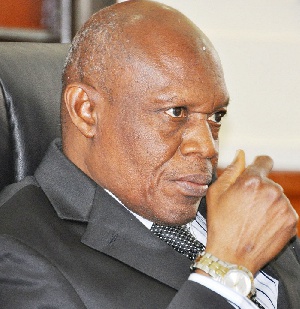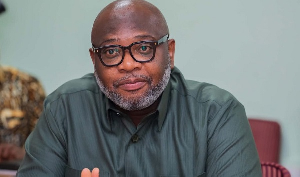Mr Justice William Atuguba, a Supreme Court Judge, has advocated a return to the era of social seclusion of the judicial in the national interest.
He said the practice was a good and wise ethic which should not be regarded as archaic, or an anti-social vice on the part of the judiciary.
Justice Atuguba, who made the suggestion at the opening of the 2015/ 2016 Criminal Session of the High Court, in Accra, explained that this would help to remove the near occasion for any unhealthy social contact with the general public.
“In the wake of the current crisis the Judiciary needs to open a new era in which corruption in all its shades cannot have an influence,” he stated.
“The ‘recent storm’ that broke out over the Judiciary must teach members a lesson that the precepts of the eternal book are inoculations against the traumas humans often experience”.
Mr Justice Atuguba said the opening of the session underscored the importance and gravity of the judicial function of keeping law and order in a democratic country, therefore it was a trust created by the state to be carried out by the judiciary.
He, however, noted that the execution of the trust required a commitment to the true pursuit of justice by all stakeholders, namely the Judiciary, the Jury, the Police, the Attorney-General’s Office, the Media and the Public.
Justice Atuguba urged all the stakeholders to observe the restraints that would make the delivery of justice henceforth truly beautiful.
Mrs Marietta Brew Appiah-Opong, the Attorney General and Minister of Justice, said the criminal session was the period where cases on indictment or cases tried by a judge and jury were heard, saying that 12 cases had been listed to be heard in the 2015/2016 legal year.
She said such occasions gave the judiciary time to pause to reflect on the importance of the law and the manner in which it is practiced, as well as gave the opportunity to reflect on the importance of the rule of law applied to all citizens, irrespective of their station in life.
“These attributes and values are so fundamental to our democratic society that we should never take it for granted,” she said.
“History and recent events in other countries should sound a clear warning that these fundamental values and attributes are delicate and must be strongly protected by judges, legal practitioners, governments and the wider community,” he said.
Mrs Appiah-Opong said it was important for the judiciary to do all in its powers not to erode confidence in the justice delivery system as judges could instill confidence that total reliance on the law and legal process is the best hope for achieving justice, social harmony and progress.
She appealed to all stakeholders including the prosecutors, the police, the Jury, members of the bar and witnesses to take keen interest in the procedure and perform their individual and collective function fairly and consistently to ensure the success of the session.
Justice E.K Ayebi, a Justice of the Court of Appeal, said during the session, offences such as murder, manslaughter and rape, which in law were designated as first degree felonies and indictable offences would be tried.
He said accused persons found guilty for any such offences may be sentenced to death or life imprisonment because these offences were considered very grave or serious offences.
He said in such trials the jury was an essential component of the adjudicatory process, hence the accused persons were tried by not only the judge but also by his peers.
The jury consists of a body of seven ordinary men and women selected from the community in which they live with the accused.
Justice Ayebi said for the criminal session to operate efficiently the jury, the police, the Attorney-General, the Prisons Service and the witnesses must not only cooperate with each other but also collaborate for the case to be tried expeditiously
He urged the jury to be punctual and regular at all sittings in order to avoid unnecessary delays, saying without them, the work could not be done and absence from any sitting without cause or permission was a punishable offence.
Mr Benson Nutsukpui, the President of the Ghana Bar Association, said the obvious lapses in the jury system had to do with the unwillingness of persons to serve, the calibre of persons who served, the poor treatment of these persons by the State, saying they had exposed the jury system to vulnerabilities that could be exploited.
He said it was important as in cases tried by indictment, the summing up of evidence and law by the judge, and the jurors’ appreciation of the exercise had a great impact on which way the scale of justice tilted.
He said a real look had to be taken at the jury system and to address the issue of legal representation of accused persons, lack of witness protection and the inability to pay them.
They should also consider commencing the process of amending Act 30 to introduce a more effective, less time and recourse consuming system.
General News of Tuesday, 24 November 2015
Source: GNA













